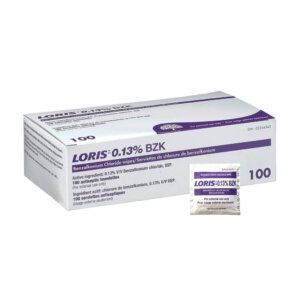
In the United States, the demand for mental health services continues to grow, yet the availability of mental health providers remains a significant challenge.
With roughly 350 individuals for one mental health provider, it is evident that addressing mental health challenges requires innovative solutions and essential tools for providers.
In this blog post, we will explore five crucial tools that can empower mental health providers to deliver practical and accessible care in the face of this growing demand. First, let’s take a look.
Electronic Health Records Software
Electronic Health Records (EHR) software is vital for mental health providers, streamlining patient information management. With user-friendly interfaces and secure data storage, EHRs allow providers to access critical patient data quickly and efficiently.
EHR software for behavioral health is specifically designed to cater to the unique needs of mental health and substance abuse providers. With specialized features and templates, it streamlines the documentation and management of patient information in this field. In addition, this software allows providers to track treatment plans, assessments, and outcomes, facilitating evidence-based care.
To reap the benefits of this software, almost every healthcare entity is now adopting EHR systems. In addition, official data indicates that the adoption of certified EHR systems has significantly increased.
The report states that as of 2021, almost all non-federal acute care hospitals (96%) and nearly 80% of office-based physicians have implemented EHR software. This widespread adoption highlights the importance of EHR software as a much-needed tool for addressing mental health challenges.
As per Accumedic Computer Systems, using EHR software can significantly enhance the standard of patient care. It improves patient data gathering, examination, and transmission, allowing healthcare providers to comprehensively assess all aspects of a patient’s condition. This, in turn, aids in making well-informed decisions regarding diagnosis and treatment, thus supporting the overall clinical decision-making process.
Assessment and Screening Tools
Assessment and screening tools are essential for mental health providers to diagnose and address various conditions accurately. In addition, these tools provide valuable insights into a person’s mental well-being, helping professionals develop effective treatment plans.
Each year, roughly 50,000 individuals in the United States lose their lives to suicide, making it the fourth highest contributor to years of life lost. This alarming statistic indicates the importance of mental health providers utilizing assessment and screening tools to identify at-risk individuals and provide timely support and intervention.
The mental health industry lacks these tools today, but some essential ones are discussed below.
The Patient Health Questionnaire (PHQ-9)
It is a widely used assessment tool that helps identify symptoms of depression and assess their severity. It consists of nine simple questions and has been proven effective in detecting depressive disorders. The PHQ-9 enables providers to screen and monitor patients quickly, facilitating timely interventions.
Generalized Anxiety Disorder 7-Item Scale (GAD-7)
This tool can effectively assess anxiety symptoms. It consists of seven questions and provides a reliable measure of anxiety severity. The GAD-7 can assist providers in identifying and tracking anxiety levels, leading to appropriate treatment strategies.
Alcohol Use Disorders Identification Test (AUDIT)
Deemed an effective tool for identifying problematic alcohol use, it comprises ten questions that assess alcohol consumption, alcohol-related issues, and dependence symptoms. This tool helps mental health providers evaluate alcohol-related concerns and develop appropriate interventions for individuals struggling with alcohol misuse.
Collaborative Care Model
The Collaborative Care model is an essential tool that empowers you as a provider to address mental health challenges effectively. This model brings together primary care providers, mental health specialists, and care managers to deliver comprehensive and coordinated care. This model helps you leverage the expertise of multiple disciplines, enabling you to offer holistic support and improve outcomes for your patients.
In this model, you play a central role as the team quarterback, guiding the treatment process. In addition, you collaborate closely with mental health specialists, sharing information and jointly developing care plans. This collaborative approach ensures that you have access to specialized expertise while maintaining continuity of care for your patients.
Many recent studies have supported the efficiency of collaborative care for mental health. For instance, studies published on the National Institutes of Health website highlight the solid evidence base for the Collaborative Care model (CoCM). With the support of over 80 randomized controlled trials, this model has consistently shown notable enhancements in patient outcomes, team collaboration, and provider satisfaction, specifically in primary care settings.
Also, collaborative interventions have resulted in 75% of patients receiving a diagnosis and initiating treatment within six months, a substantial improvement compared to the less than 25% achieved through usual care.
Electronic Clinical Outcome Assessment Solutions
Electronic Clinical Outcome Assessment (eCOA) solutions are vital tools that can significantly enhance mental health care delivery. These solutions can help you efficiently measure and monitor patient-reported outcomes, allowing for more accurate assessments. With eCOA, you can gather real-time data, track progress, and make informed treatment decisions.
Highlighted below are the key advantages of these solutions:
- First, efficiently collect and analyze data by digitizing assessments and questionnaires, resulting in time savings and higher accuracy.
- Provide real-time data for tracking patient progress, enabling timely interventions and informed treatment decisions.
- Enhance patient engagement and ownership in treatment by conveniently reporting symptoms and outcomes.
- Improve overall care quality by accessing comprehensive and easy-to-interpret data, enabling personalized treatment plans.
With the increased use of these solutions, the global industry is likely to experience high growth in the upcoming years. As per Reports and Data, the market size for these solutions was valued at $1.36 Billion in 2022, and it is projected to reach $4.78 Billion by 2032. This exponential growth signifies the increasing recognition and adoption of eCOA tools in addressing mental health challenges.
Mobile Apps and Digital Tools
Mobile apps and digital tools have revolutionized mental health care, providing required resources for providers and patients. These innovative tools offer convenient access to information, support, and therapeutic interventions. In addition, these tools can assist you in improving treatment outcomes.
One significant advantage of mobile apps and digital tools is their ability to extend mental health support beyond traditional therapy sessions. These tools provide users continuous access to self-help resources, coping strategies, and interactive exercises. When you encourage patients to use these tools, you empower them to participate in their mental well-being actively.
The vast array of mobile apps and digital tools cater to diverse mental health needs. These tools offer various interventions, from meditation and stress reduction apps to virtual therapy platforms. The time is ripe for exploring and integrating these resources into your practice to expand your therapeutic toolbox and provide tailored patient support.
Summing Up
Addressing mental health challenges requires providers to utilize tools that enhance care delivery.
The five tools discussed in this blog offer invaluable support in the mental health care landscape. Embracing these tools can empower you to improve patient outcomes and promote a more holistic approach to mental well-being.
Plus, these tools can help you meet the evolving needs of your patients and overcome the challenges of mental health care. You can foster a patient-centered approach that prioritizes personalized care, early intervention, and improved outcomes by embracing technology, collaboration, and patient engagement.








